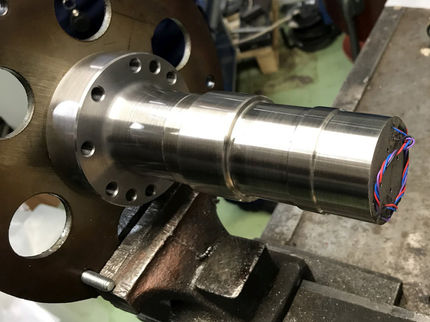Oxea starts propanol production in Texas
Oxea has successfully started up its new 100,000 mt per annum world-scale production unit “Propanol 2” at its Bay City, Texas, USA, site. The now fully operational, state-of-the-art unit will increase Oxea’s North American production capacity for n‑propanol by 75 percent. Construction and commissioning of the new unit were completed incident-free, ahead of schedule and under budget. Oxea has used its proprietary process technology and process expertise to optimize production and improve product yield at Propanol 2. The first specification grade batches of material from the new unit have already been shipped to customers.
“I am proud to say that the new propanol production unit has been successfully started up incident-free and ahead of schedule. Propanol 2 demonstrated both quality and capacity deliverables sooner than expected and is now fully integrated into existing operations. The successful start-up was the result of excellent teamwork between the project team, operations, engineering, and contractors. Leveraging Oxea’s knowledge as the world leader in propanol production, the new unit will be a foundation for on-going optimization and growth,” commented Fred Gaytan, Site Director Bay City and Bishop at Oxea.
“Propanol 2 is a critical part of our selective growth strategy and a commitment to our Bay City production site. The new unit has been one of our largest investment projects in the past years. With its successful start-up, we achieved a major milestone on our roadmap and further strengthened our global production platform,” said Oxea’s CEO, Dr. Salim Al Huthaili. “With the increased n‑propanol volume, we can now better serve the growing needs of existing and new customers worldwide. This particularly applies to Propyls from Oxea, a blend of n-propanol and n-propyl acetate. They are touted as a game changer for the rotogravure and flexographic printing industry because with our Propyls print shops can achieve higher print quality and produce more economically at the same time,” he concluded.
Other news from the department business & finance

Get the chemical industry in your inbox
By submitting this form you agree that LUMITOS AG will send you the newsletter(s) selected above by email. Your data will not be passed on to third parties. Your data will be stored and processed in accordance with our data protection regulations. LUMITOS may contact you by email for the purpose of advertising or market and opinion surveys. You can revoke your consent at any time without giving reasons to LUMITOS AG, Ernst-Augustin-Str. 2, 12489 Berlin, Germany or by e-mail at revoke@lumitos.com with effect for the future. In addition, each email contains a link to unsubscribe from the corresponding newsletter.


























































